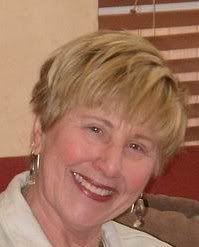
Our story is what we tell ourselves and others, based on our own interpretation...the way we see things. If, for example, someone abused us verbally in the past, we can say that 1. We irritated people with our behavior, 2. There was much stress in our life, 3. We lived with a really bad person, 4. The person needed anger management....etc. etc. etc.....It's possible to have as many versions of the same happening as there are people. We choose our story.
Our happiness depends on how we choose to interpret what happens around us. Do your friends not enjoy talking with you or are they too busy to call you? In every case, you have a choice in the story you tell. Strive to tell a better one! :-)
David Krueger, MD has some good suggestions
| Repeat: Are you repeating an old story hoping for a better outcome? | ||
| The software developed for past experiences shape current perception and processing. The brain perceives things in ways it has been trained to do. The challenge is twofold: we need regular software updates, much like our computer; we can only imagine within our current system. | ||
| Rationalize: Do you dismiss or compromise any aspect of your life story? | ||
| Warning signs include personal compromise, conflict with other people, limited success, unhappiness, or not being able to convert your talent into corresponding income. | ||
| Recognize: Are your needs, ideals, passion, and talents all going in the same direction? | ||
| If your life or business story is not satisfying, or if you haven't attained your objectives, look more closely: You are always reaching your goals, whether they are conscious or unconscious. It is helpful to know consciously and specifically what those goals are. | ||
| Reorganize: Do all the storylines fit and advance the plot of your life story? | ||
| Once becoming aware of active choice, you can decide what's in your best interest, what furthers your story. And what doesn't. Neuroscientist Gregory Berns examines the science of thinking differently—iconoclasts in particular—to emphasize how we need to put ourselves in new situations to see things differently and boost creativity. | ||
SOME SUGGESTIONS FOR CREATIVE STIMULATION:
|
